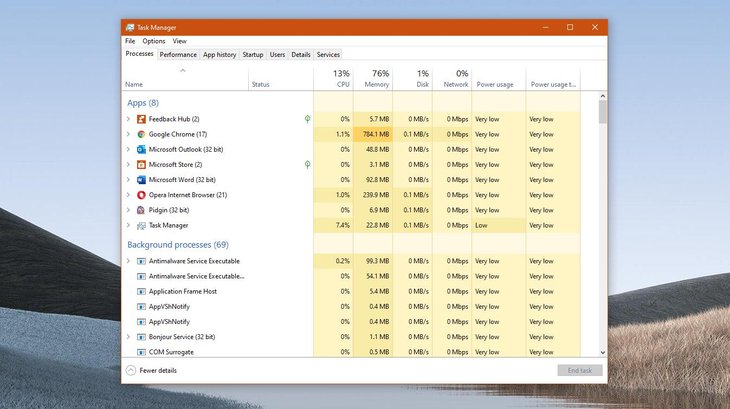

These processes handle graphic elements like the desktop Start menu and assign startup tasks to the PC when it’s turned on. You don’t want to stop a process like explorer.exe or winlogon.exe, unless you have a good reason. However, buggy or unexpected behavior - for example, one Windows process trying and retrying to perform a search action that has been disabled elsewhere - can sometimes cause a single process to consume nearly all of your system’s resources.Īfter you’ve opened Task Manager and found the process unexpectedly using up a large amount of CPU resources, search online to identify it. When your PC is idle, all of these processes together should use less than 10% of your CPU capacity. These Windows processes should only use a small amount of processing power or memory - 0% or 1% is typical. If you see a background process with a name like Runtime Broker, Windows Session Manager, or Cortana at the top of the CPU column when you hit 100% CPU usage, then you have an issue. These processor technologies can greatly increase the speed of multitasking with demanding programs, but they don’t prevent abnormal CPU usage situations from occurring. The latest Intel® Core™ processors also feature Intel® Turbo Boost Technology that helps process heavy workloads by dynamically increasing the frequency of your CPU. Intel® Thread Director, a feature introduced in 12th Gen Intel® Core™ processors, optimizes multitasking performance to increase core efficiency and reduce the performance impact of high-intensity applications like games. Modern CPUs handle multitasking situations by splitting processes between multiple processor cores, which work through different instruction threads simultaneously. High CPU usage while multitasking can be normal. If you’re dealing with this kind of everyday high-CPU usage situation, you should close all background programs and tabs you aren’t using, then return to Task Manager and see if the situation has changed. You can expect high CPU utilization when playing some games, running a video-editing or streaming application, performing an antivirus scan, or juggling many browser tabs.


 0 kommentar(er)
0 kommentar(er)
